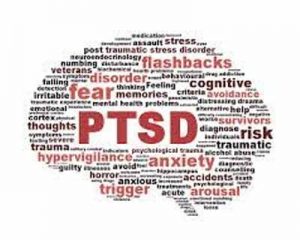- Home
- Editorial
- News
- Practice Guidelines
- Anesthesiology Guidelines
- Cancer Guidelines
- Cardiac Sciences Guidelines
- Critical Care Guidelines
- Dentistry Guidelines
- Dermatology Guidelines
- Diabetes and Endo Guidelines
- Diagnostics Guidelines
- ENT Guidelines
- Featured Practice Guidelines
- Gastroenterology Guidelines
- Geriatrics Guidelines
- Medicine Guidelines
- Nephrology Guidelines
- Neurosciences Guidelines
- Obs and Gynae Guidelines
- Ophthalmology Guidelines
- Orthopaedics Guidelines
- Paediatrics Guidelines
- Psychiatry Guidelines
- Pulmonology Guidelines
- Radiology Guidelines
- Surgery Guidelines
- Urology Guidelines
Meditating twice a day for 20 mins cut PTSD symptoms in older adults

Just 20 minutes of meditation twice a day may reduce symptoms of post-traumatic stress disorder (PTSD) in older adults, suggests a recent study.
According to researchers from Maharishi University of Management in Fairfield, Iowa, veterans of the war in Vietnam, the Gulf War, Somalia, Iraq and Afghanistan suffering from post-traumatic stress disorder (PTSD) found significant relief from their symptomsas a result of practising the Transcendental Meditation (TM) technique.
Transcendental Meditation is a technique for detaching oneself from anxiety and promoting harmony and self-realization by meditation, repetition of a mantra and other yogic practices.
"It's remarkable that after just one month we would see such a pronounced decrease in symptoms, with four out of five veterans no longer considered to have a serious problem with PTSD," said lead author Robert Herron.
"Transcendental Meditation is very easy to do and results come quickly," said another researcher James Grant.
The research has shown that Transcendental Meditation has a positive benefit for many of the conditions associated with PTSD, such as high anxiety, insomnia, depression and high blood pressure.
The team analysed 41 veterans and five active-duty soldiers in the study had been diagnosed with clinical levels of PTSD.
The study included a 90-day post-test; PTSD symptoms continued to improve.
The noticed a significant benefit after just 10 days of TM practices.
After one month, 87 percent had a clinically significant decrease of more than 10 points.
The reduction was so great that 37 participants (80 percent) had their symptomsreduced to below the clinical level, meaning that they were no longer considered to have a disorder.
"Because it works on the neurophysiological level to reduce stress, it has a broader impact than cognitively-based therapies," he said.
The participants learned the standard Transcendental Meditation technique and practiced it for 20 minutes twice a day.
The findings indicated that the veterans who practiced Transcendental Meditation technique for 20 minutes twice a day had greater benefits than those who practiced once a day.
"Researchers have been calling for new approaches to PTSD treatments, and Transcendental
Meditation seems to be particularly effective," Dr. Grant said.
The research appears in Military Medicine journal.

Disclaimer: This site is primarily intended for healthcare professionals. Any content/information on this website does not replace the advice of medical and/or health professionals and should not be construed as medical/diagnostic advice/endorsement or prescription. Use of this site is subject to our terms of use, privacy policy, advertisement policy. © 2020 Minerva Medical Treatment Pvt Ltd